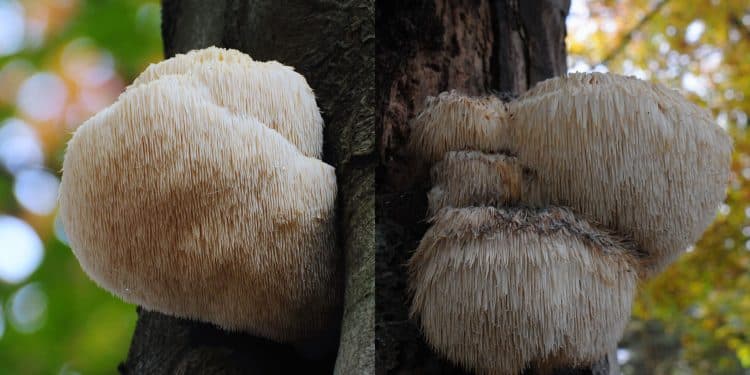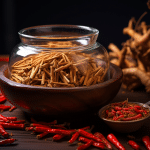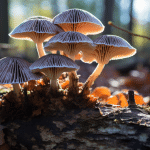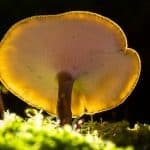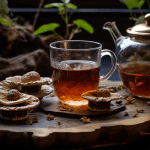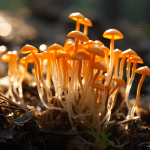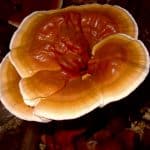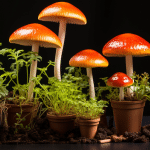Lion’s mane mushrooms are getting lots of attention because of their potential for enhancing the effects on the brain. This fungus-based supplement can be prepared fresh, dried, and powdered, or made into a tea, there is really no limit on how you can consume a daily dose of adaptogens. In fact, lion’s mane is considered to be a delicacy in traditional cooking, often being compared to a fine piece of seafood-think of the mushrooms themselves as being incredibly versatile.
That is good news for first-time consumers looking to incorporate it into their daily doses, but one question remains unanswered: What does lion’s mane mushroom taste like, and how is the best way to use, cook, or prepare it if you are not a fan of mushroom flavors?
So What Does Lion’s Mane Taste Like?
Most people say that lion’s mane tastes just like crab or lobster. It is a little chewy, sweet, with that seafood taste. The various products taste all different, with some being tasteless or working great in drinks and other recipes where they hide mushroom flavors. If you plan on using lion’s mane for therapeutic purposes, you will want to be careful about how much dose is used, whether taking a capsule-based supplement or cooking with the fresh lion’s mane mushrooms.
What Does Lion’s Mane Mushroom Powder Taste Like?
Lion’s mane powder generally has a bit more of a muffled, slightly sweet earthy flavor compared to the fresh mushrooms. The powder is milled finely, with a texture closer to that of powdered sugar. It is not as bitter or as bold as some of the medicinal mushroom powders, but it goes great in boldly-flavored drinks.
For that reason, lions mane powder is used by many in coffee, tea, or hot cocoa. You can also find various powdered concoctions pre-mixed to match the taste profile of Lions Mane to perfection, and many contain additional adaptogenic and nootropic supplements.
How to Cook Lion’s Mane
Lion’s mane mushrooms are incredibly easy to prepare, and easy is the best way to appreciate the subtle flavors and textures of the fresh mushrooms. There are a variety of ways you can prepare lion’s mane, but we suggest simply frying them in butter or oil on a medium-high heat. You will just want to cook the mushrooms for about 5 minutes on medium heat, until they have shrunk a bit and are golden brown. Overcooking the lions mane mushrooms will make them more chewy, so remove from heat once you have achieved the golden color.
Quick Facts on Lion’s Mane
Lion’s mane is an edible mushroom known as Hericium erinaceus that grows on hardwood trees during the late summer and fall. This medicinal mushroom has been used in Asian herbalism for centuries to support healthy brain function. Lion’s mane has been studied for its varied health benefits, but only recently has its potential as a “brain enhancer” received the attention it deserves. Modern studies have confirmed its potential benefits in supporting healthy mood, balanced immune systems, and cognitive function.
Better Quality, Means Better Flavor
First of all, a lion’s mane supplements quality is going to have a major effect on how it tastes. Poor-quality products, particularly ones that are damaged or contaminated, can taste extremely sour or laced with chemicals. This is a sign that something is off, and you should check expiration dates and testing results to ensure that you are buying clean, fresh products. If everything checks out, but the product still seems “off,” reach out to the manufacturer for their opinion.
Fresh or Raw Lion’s Mane Flavor
Lion’s mane mushrooms are available for consumption both fresh and prepared and cooked. The fresh mushrooms taste a bit “seafood-like,” but when you cook the mushrooms, they will increase in taste. Many people have suggested that lions mane has a crab-like taste and texture.
It is mildly tender and stringy, with a chewy, succulent bite. It is a famously loved dish in many parts of the world, as it readily takes on flavors and spices, making for a versatile addition to many dishes.
Use Lion’s Mane Capsules If You Don’t Like the Cooked Flavor
If mushrooms tasting like crab meat does not sit well with your palate, you can still get the benefits of lion’s mane without the flavors. Lion’s mane capsules are an excellent option for anyone looking for a tasteless dosage. Capsules are made by drying the mushroom and grinding it down to a fine powder. These supplements can be made either with the entire mushroom or from fruiting bodies, either may have its benefits.
You can find our favorite capsules, powders, and tincture’s on the following pages of our website and learn more about each individually:
The Best Lion’s Mane Supplements
The Best Lion’s Mane Tinctures
Lion’s Mane Mushroom Flavor FAQs
Does Lion’s Mane Taste Good?
Many people like the flavor of lion’s mane, comparing it to that of crab or lobster. It does not have the harsh, woody taste that is found in most functional mushrooms, and is therefore sometimes enjoyed by people who are not into the traditional mushroom flavors.
Does It Really Taste Like Lobster?
Some people have compared the flavor to lobster, crab, or other mild, mildly sweet seafood.
It is used in many recipes as a vegan substitute for crab and lobster.
Does It Taste Sour?
Lion’s mane does not have any taste of acidity.
In fact, it is slightly sweet, with some umami. If your lion’s mane tastes acidic, then it might be spoiled.
Is Lion’s Mane Mushroom Sweet?
It is. Slightly, but it is not dessert-like. Lion’s mane has a gentle sweetness, like crab or lobster.
Additional Resources:
Lion’s Mane Mushroom | Everything you need to know
Updated 10/10/2022
